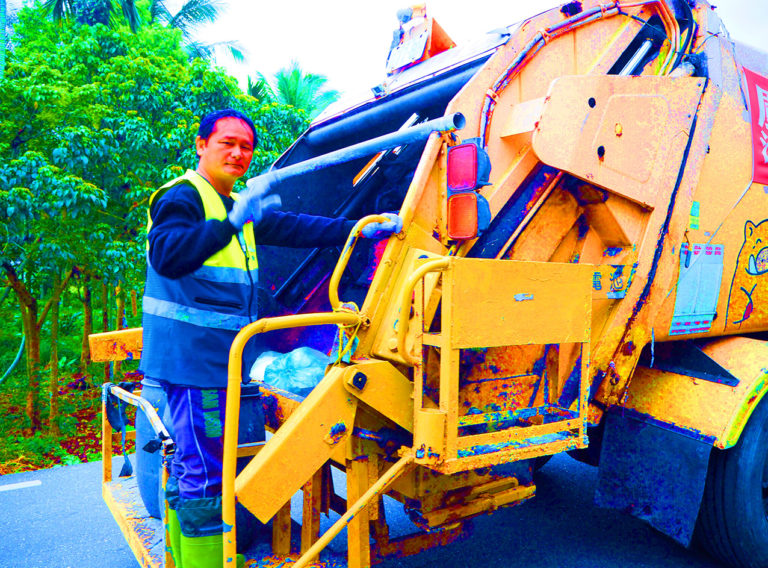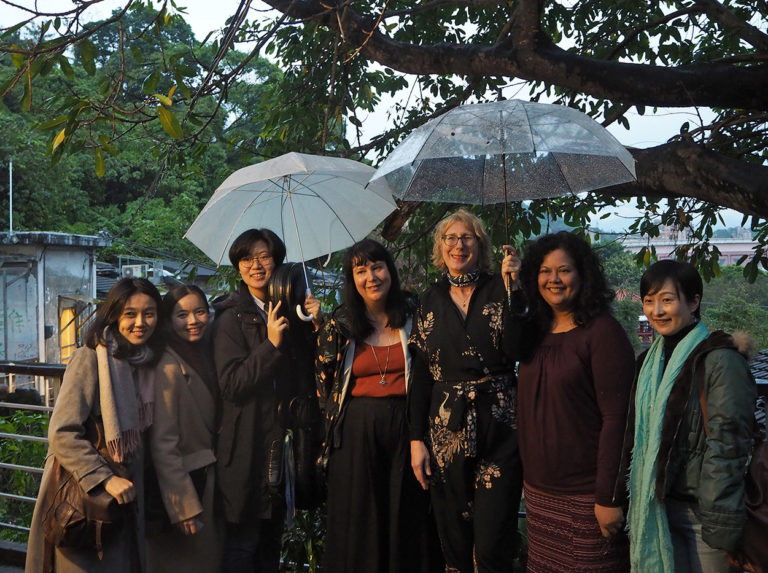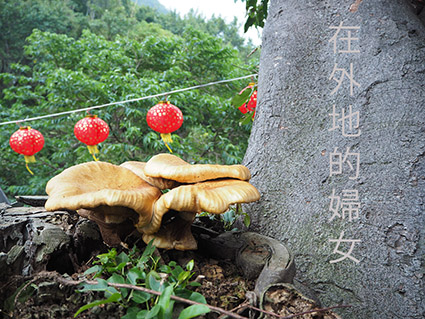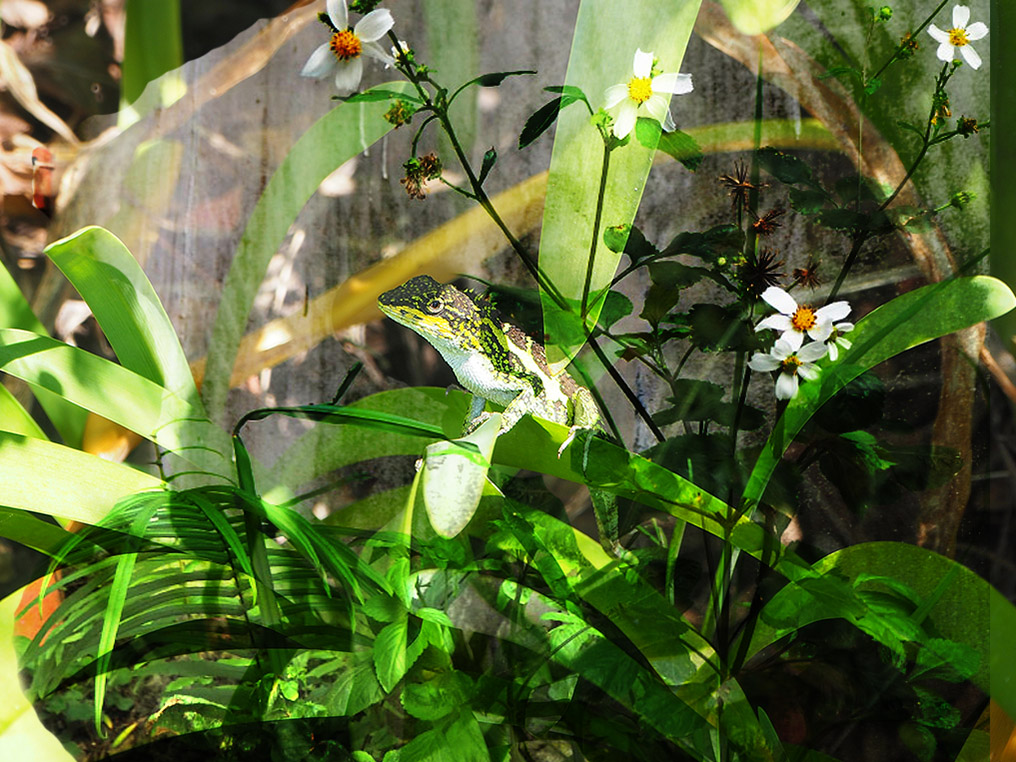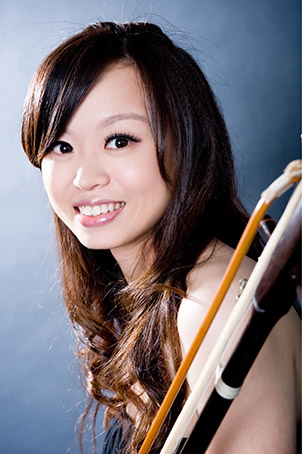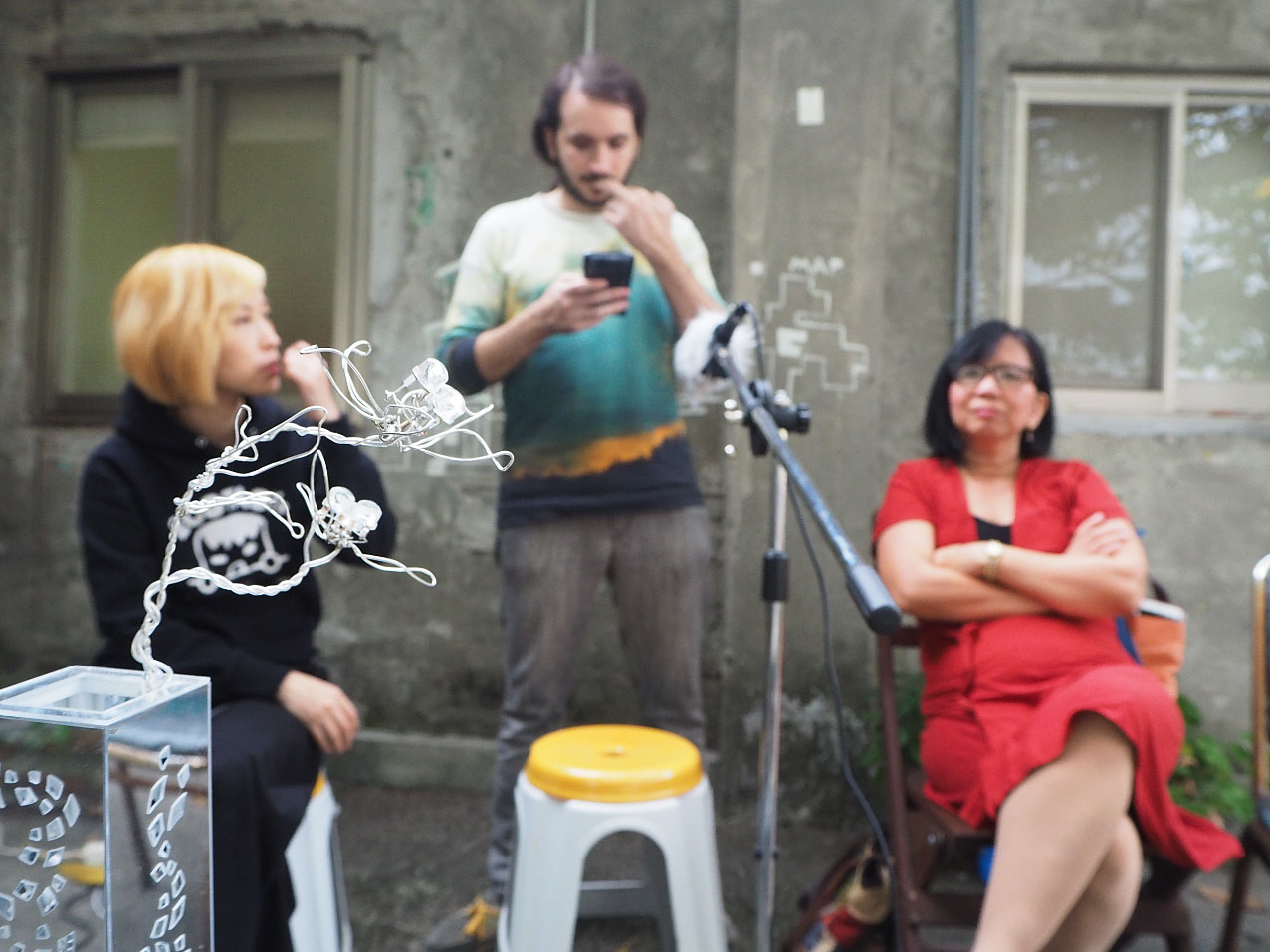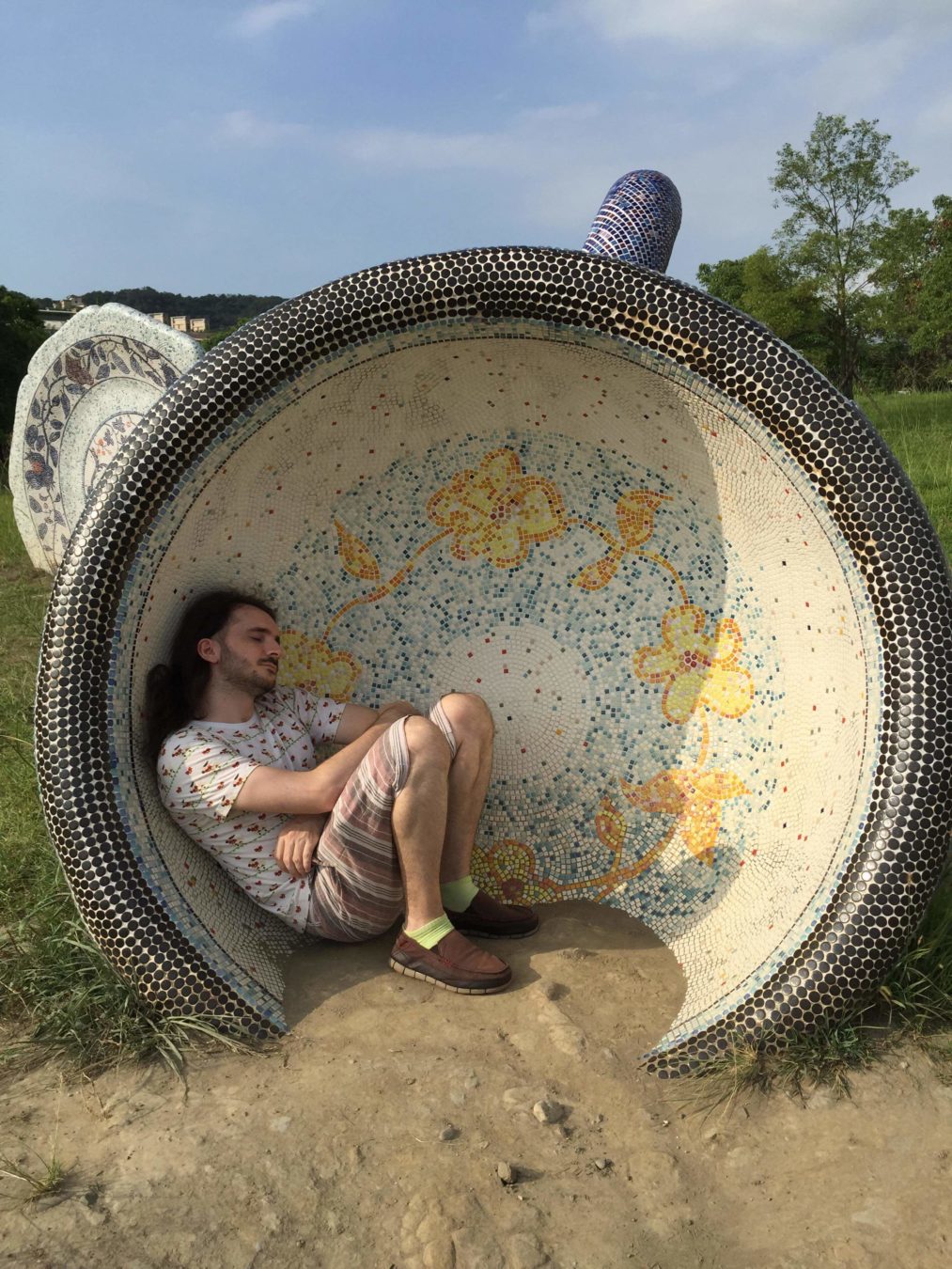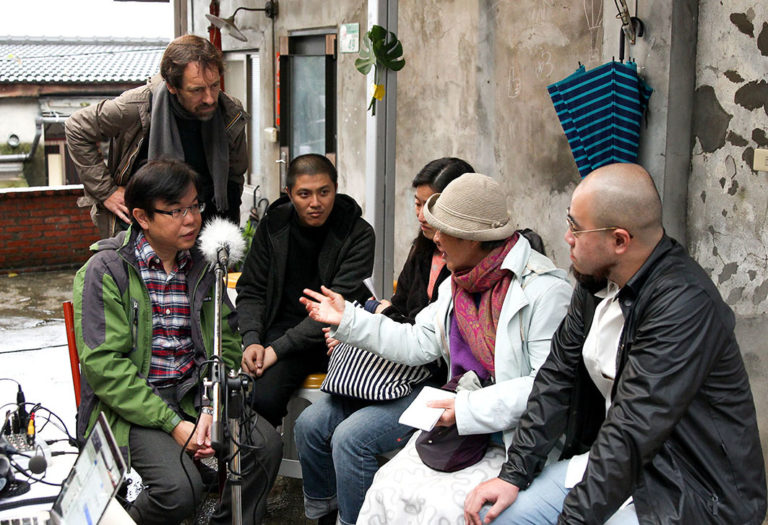
The generation of waste is the most distinctive trait of human civilization, and it is increasingly threatening the environment we depend on. Datscha Radio’s final broadcast presented once more a wide spectrum of artists and participants, of tales and talks, of sonic transmissions and subterranean secrets.

Starting with Taiwan’s probably best known tune, “For Elise” by Beethoven, that is being used as the “trash car anthem” we pondered over the benefits of Taiwan’s municipal garbage collecting system. Because, unlike in Europe, there are no bins in the backyards and there are only very few public waste bins to be found in the streets. Instead, on 5 out of 7 days a week, trash cars roam the streets under the wail of this popular tune and signalling by this that it is time to take the trash out _ already sorted into paper, plastic, food leftovers and other.

Among other things, it was also pointed out by Margaret Shiu (Bamboo Curtain Studio) how this mode of trash collection exerts a considerable influence onto neighbourly relations: “It is also a time to meet your neighbour, a chance to address personal affairs, to get to know the rhythms of your environment”.

Yet, all well meant efforts are doomed to failure if the sorting of plastic waste becomes just to complicated for the citizens. J.K. Wang with his background in engineering, explained about various kinds of plastic and the current problems of re- and down-cycling. Is plastic really so inevitable that we have to content with its (re)use as a resource? How much hygiene do we really need when it comes to the packing of vegetable and fruits?

The weather, by the way, on that day was quite horrible. It had rained for three days in a row, and because more participants than usual were expected, the Datscha Radio moved to the “Cross Gallery”. So we sat under a polyethylene roof, our feet in puddles, our jackets for most part zipped up unto our chins. True radio gardeners!

Would you know, for example, that the Romans worshiped not only a Goddess of Waste called “Caca” but also a Goddess of the Sewers that went by the name of Cloacea? “CloaceaGardenMix” was the name of a compilation of sewer recordings made by Serge Onnen and introduced by Mark van Tongeren, and Mark’s spontaneous improvisation of an imaginative prayer song for Cloacea was a definitive highlight of this show!
Scheduled for the show were also four selected pieces submitted by the open call, yet, as the discussion among the guests was very lively, only one found its way into transmission: Chelidon Frame’s “Left Blank” which is based on (processed) recordings of empty bottles.

A couple of days earlier I had the occasion to make an interview with the French nature recordist Yannick Dauby. “When you bend down 200 times a day you start thinking differently about waste” was a 24 min excerpt of that talk.
With Datscha Radio’s focus on sound art two other waste-related topics arose. One concerned possible parallels between noise and/or audio waste and practices of collecting, recycling and/or discarding. The other dealt with the issue of noise pollution.

“Sonic Garbage Collection” was one of the pieces specifically made for this broadcast, a prerecorded improvisation by the anthropologist Gabriele de Seta and Lu Yi, the assisting artist to Fuyui Wang of Soundwatch. This was followed by a short presentation of two works by Fujui, one of them a most filigrane recording of a signal loop inside a light bulb (“Sound Bulb”). Since the artist wasn’t present at that time, Wu Tsancheng (featured in DRT’s #2 broadcast) and Mark’s musician friend Lee Szu Tung, introduced this pioneer of Asian electronic music in their own words.

Fujui Wang, who is the Head of the Trans-Sonic Lab for Art and Techology Center of the Taipei National University of the Arts, joined us about an hour later, together with Lu Yi and we were able to catch up on the planned interview.

Meanwhile, the sun had set… and it was time for two longer pieces that would allow us to stretch our legs, have some drinks and chat. “The Dog That Licked Up A Star” by myself was a composition based on short wave snippets and field recordings made in the province of Hengchun. It came with my classic “Handbag Performance”. (Later on I was told by Lu Yi, that performers in Taiwan do never present their work in such a casual way. Rather they are expected to take on a “harsh” and dominant posture… )

The final piece played had been conceived of by the composer, DJ and musician Ken Yu from Yilan. Hauyu Yang had made a short interview with him and afterwards we listened attentively to “Sea Waste 7.0”, a 17 min track based on the feeling of shock and disgust that the artist struck when he recently found himself walking among the plastic debris of the Yilan shore.
Read More
